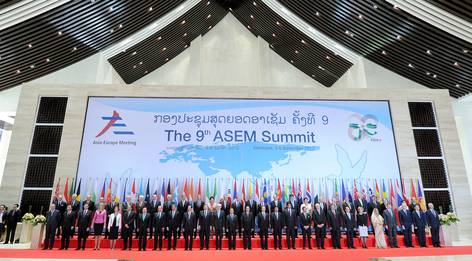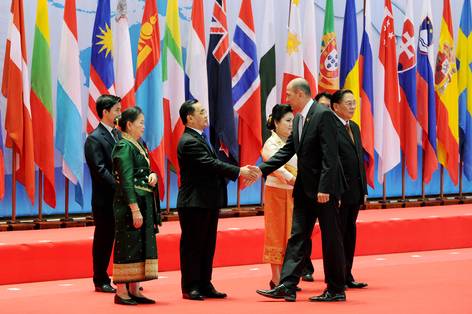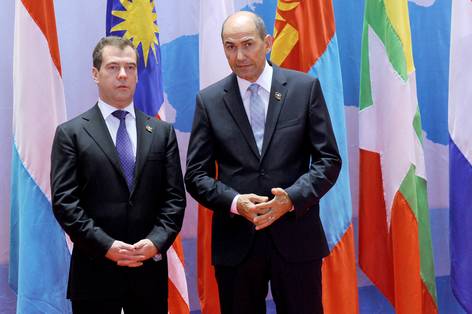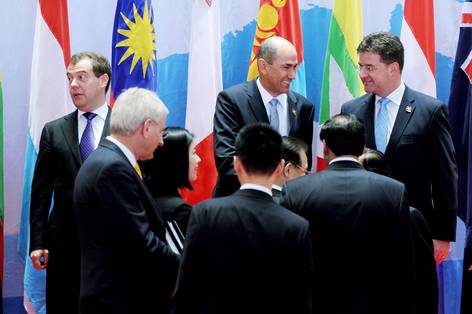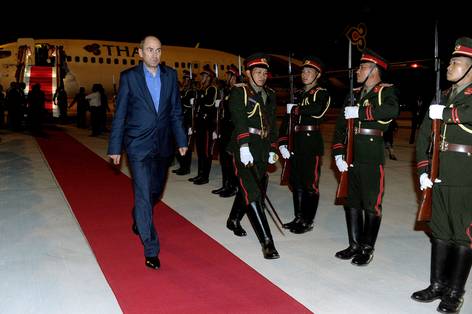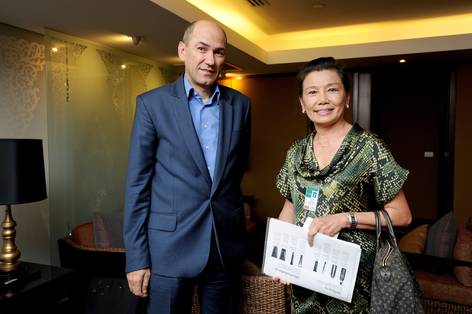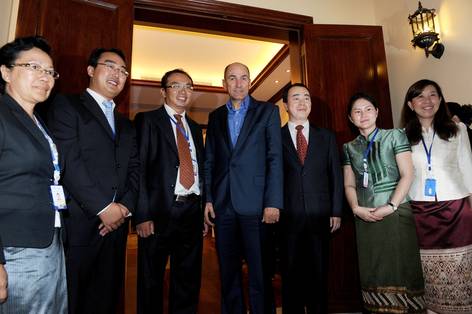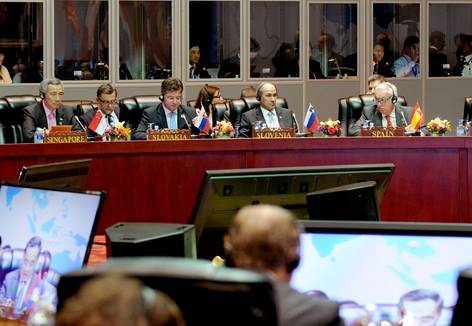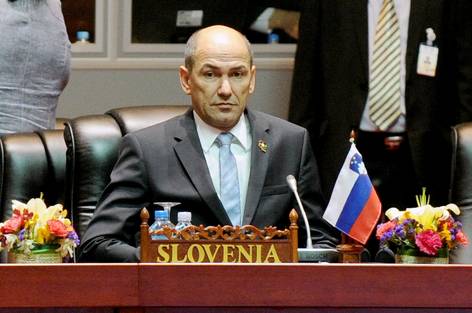NEWS
Prime Minister of the Republic of Slovenia, Janez Janša, on shared responsibility for the stability of financial systems at the ASEM Summit
The Prime Minister of the Republic of Slovenia, Janez Janša, today began his first day at the ASEM Summit held in Laos, attended by top politicians from the EU and other ASEM member countries. The focus of today's discussion was on a range of economic and financial issues.
The countries attending this summit account for 60% of the total world population and generate more than 50% of the world GDP. The participants agreed that the organisation represents a key partnership on which the global sustainable development depends. On the one hand, the discussion prompted the participants to consider enhanced competitiveness and revived economic growth in the EU partner states and the necessary adjustments in consumption patterns and in the opening of the markets of ASEM’s Asian partners on the other.
The 9th ASEM Summit, which is taking place in Laos, was opened by the Prime Minister of the Lao People's Democratic Republic, Thongsing Thammavong, on behalf of the host country. The introduction was marked by an admission ceremony for new ASEM members, i.e. Norway, Switzerland and Bangladesh. The summit participants were first addressed by the President of the European Council, Herman Van Rompuy, and the European Commission President, José Manuel Barroso. They addressed the EU's efforts for the stability of the euro and revival of economic growth while simultaneously highlighting the importance of good cooperation between the two regions.
In his speech during today's discussion on economic and financial issues, Prime Minister Janša pointed out economic policy weaknesses during the global crisis. He stressed that, in the current crisis, the EU could learn a lot from the Asian countries that had successfully overcome a similar crisis fifteen years before. He also pointed out the vital importance of the financial sector to any economy: "For this reason, we need to ensure better control, better resistance and appropriate incentives." He stressed the need to improve the functioning of the capital markets and to allocate funds to productive investments, where pension system reforms can play a major role.
Prime Minister Janša went on to outline Slovenia's efforts to find a way out the crisis, including the adopted measures, such as the reduction in government spending, labour market reform and the creation of an investment-friendlier business environment. He particularly emphasised that Slovenia also welcomes Asian investors who could take good advantage of Slovenia's geostrategic position in order to penetrate the markets in Central and South Eastern Europe. Prime Minister Janša concluded by saying that mutual cooperation and partnership will be essential in the future to ensure an equitable and stable international economic order.
Tomorrow, in the final part of the summit, the Slovenian Prime Minister will take part in the discussion on global challenges and maintenance of peace and stability. He will speak about the importance of the efforts for a world without genocide and other mass atrocities as well about the ASEM countries' responsibility for world peace.
The schedule for tomorrow's final events includes the adoption of the Vientiane Declaration on Strengthening Partnership for Peace and Development and of the Statement of the Chair of the 9th ASEM Summit that will resume the key substantive messages of this summit.




